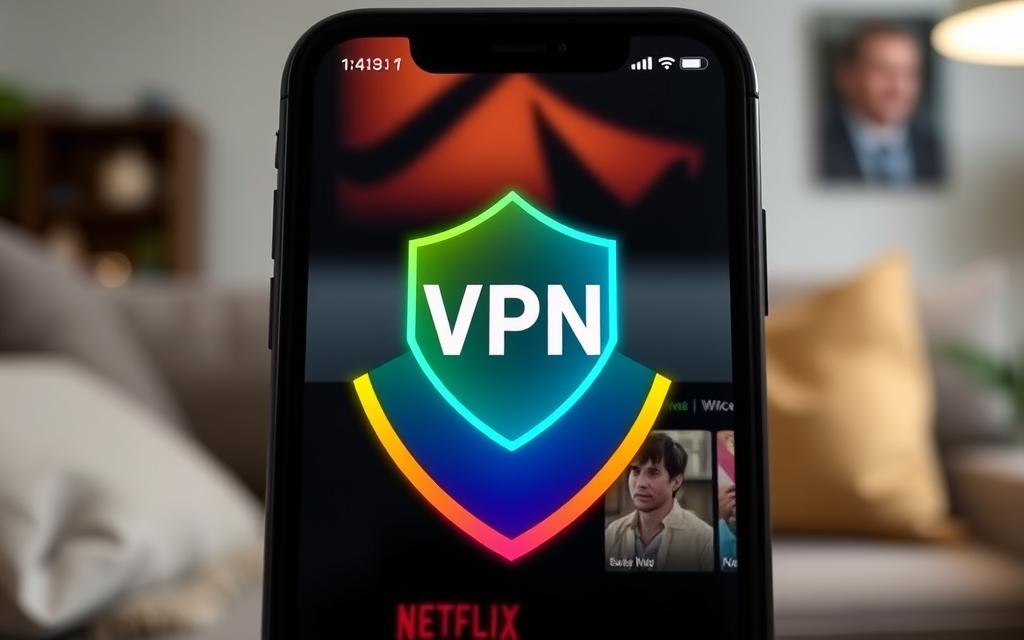Secure Your Anonymity Online with Expert Tips
Online privacy is becoming a growing concern for people’s personal lives. Protecting personal information requires taking internet security measures. In this section, we’ll explore essential tips from experts to secure your anonymity online and maintain your online privacy. With these tips, you’ll be able to hide your digital footprint effectively and safeguard your personal information while browsing the internet. Keep reading to learn more about how to secure your anonymity online.
The Importance of Online Privacy in the Digital Age
In today’s digital age, online privacy has become increasingly important. Without proper safeguards, your private online activities can be monitored, tracked, and accessed by unauthorized parties, leaving you vulnerable to potential risks.
Protecting your personal information is crucial while engaging in private online activities. Safeguarding your anonymity online can help you maintain control over your digital footprint and reduce the risk of data breaches, identity theft, and online harassment.
Establishing an anonymous online presence is a critical step towards enhancing your privacy. By utilizing tools such as virtual private networks (VPNs) and encrypted messaging apps, you can shield your online activities from prying eyes and protect your personal information from being compromised.
Investing in internet security measures, such as using strong passwords and regularly updating software, can further enhance your privacy and prevent potential cyber threats.
Overall, understanding the significance of online privacy and taking proactive measures to protect your personal information is crucial in today’s digital age. By establishing an anonymous online presence and implementing internet security measures, you can safeguard your digital footprint and enjoy a safer online experience.
Effective Measures to Secure Internet Browsing

Browsing the internet without taking proper precautions can put your personal information at risk. Fortunately, there are various effective measures you can implement to secure your browsing experience and protect your sensitive data.
Secure browsing tools
One of the best ways to enhance internet security is to use secure browsing tools such as Virtual Private Networks (VPNs), which encrypt your internet traffic and protect your online identity. Browser extensions such as HTTPS Everywhere and uBlock Origin also provide extra security by encrypting your browser connections and blocking malicious ads and scripts.
Best practices for internet security
Implementing best practices for internet security can go a long way in protecting your personal information. These include using strong and unique passwords, avoiding public Wi-Fi networks, keeping your software up-to-date, and being wary of phishing scams and suspicious links.
Protecting your digital footprint
Your digital footprint is a record of your online activity that can potentially be used to track your behavior and compromise your privacy. To protect your digital footprint, avoid sharing too much personal information online and regularly clear your browsing history and cookies. You can also use privacy-enhancing browser modes such as Incognito and Private browsing.
By implementing these effective measures, you can secure your internet browsing and protect your personal information from online threats.
Strategies for Masking Your Digital Footprint
If you want to safeguard your privacy and protect your personal information online, you need to mask your digital footprint effectively. By following the strategies outlined below, you can engage in anonymous web browsing and implement internet security measures to protect your online identity and safeguard your digital footprint from prying eyes:
1. Use a VPN
A Virtual Private Network (VPN) will encrypt your online activities and hide your IP address, making it difficult for anyone to monitor your internet traffic or trace it back to you. By connecting to a VPN server, you can mask your digital footprint and maintain your privacy while browsing the web.
2. Use Tor Browser
Tor Browser is a free and open-source web browser that provides strong anonymity and privacy protection. By routing your internet traffic through a series of servers, Tor Browser makes it hard for third parties to track your activities or identify your online identity.
3. Implement Internet Security Measures
Implementing internet security measures such as using anti-virus software, enabling firewalls, and avoiding suspicious websites and links can also help prevent digital footprint tracking and protect your online identity.
4. Use Encrypted Messaging Services
Using encrypted messaging services such as Signal or WhatsApp can help protect your privacy by securing your communications and preventing unauthorized access to your online conversations and data.
5. Avoid Sharing Sensitive Information Online
One of the most effective ways to safeguard your digital footprint is to avoid sharing any sensitive information online, including passwords, credit card information, and personal details such as your address or phone number.
By taking these steps to mask your digital footprint and protect your online identity, you can enjoy a safer, more secure online experience.
Conclusion
It’s crucial to secure your anonymity online and protect your personal information to maintain online privacy. By implementing internet security measures, you can engage in anonymous web browsing and safeguard your digital footprint. Remember to use secure browsing tools and follow best practices to ensure a safer online experience.
So, take control of your online presence and protect your anonymity today. Don’t leave your online privacy to chance. Practice safe browsing habits and keep your personal information hidden from prying eyes.
Thank you for reading our guide on how to secure your anonymity online. We hope you found it informative and useful. Remember to stay safe online and protect your privacy at all times.
FAQ
How can I secure my anonymity online?
To secure your anonymity online, you can follow these expert tips:
- Use a reputable virtual private network (VPN) to encrypt your internet connection and mask your IP address.
- Opt for secure, encrypted messaging apps to ensure your conversations remain private.
- Regularly update your devices and software to patch security vulnerabilities.
- Enable two-factor authentication (2FA) on your accounts for an extra layer of security.
- Avoid sharing personal information on public platforms and be cautious of phishing attempts.
Why is online privacy important in the digital age?
Online privacy is crucial in the digital age due to:
- The potential risks of identity theft and fraud.
- The need to protect personal information from unauthorized access.
- The importance of preserving the confidentiality of private online activities.
- The desire to maintain an anonymous online presence.
How can I secure my internet browsing?
You can secure your internet browsing by taking these measures:
- Install a reputable antivirus software to detect and prevent malware attacks.
- Use a secure web browser that provides encryption and blocks malicious websites.
- Employ a firewall to create a barrier between your device and potential threats.
- Consider using a privacy-focused search engine that doesn’t track your online activities.
- Regularly clear cookies and browsing history to minimize the traceability of your online actions.
What strategies can I use to mask my digital footprint?
Here are some strategies to mask your digital footprint:
- Utilize a virtual private network (VPN) to encrypt your internet traffic and anonymize your online presence.
- Use Tor, a free software that allows anonymous web browsing and access to blocked websites.
- Minimize your digital footprint by using pseudonyms or alternate email addresses for online accounts.
- Be cautious while sharing personal information on social media and adjust privacy settings accordingly.
- Regularly monitor your online presence and consider using reputation management services if needed.
What are the benefits of protecting my anonymity online?
Protecting your anonymity online offers several benefits, such as:
- Enhanced online privacy and control over your personal information.
- Reduced risk of identity theft and cybercrime.
- Freedom to engage in private online activities without the fear of being tracked or monitored.
- Improved protection against targeted advertising and data profiling.
- Peace of mind knowing that your digital footprint is safeguarded from prying eyes.




